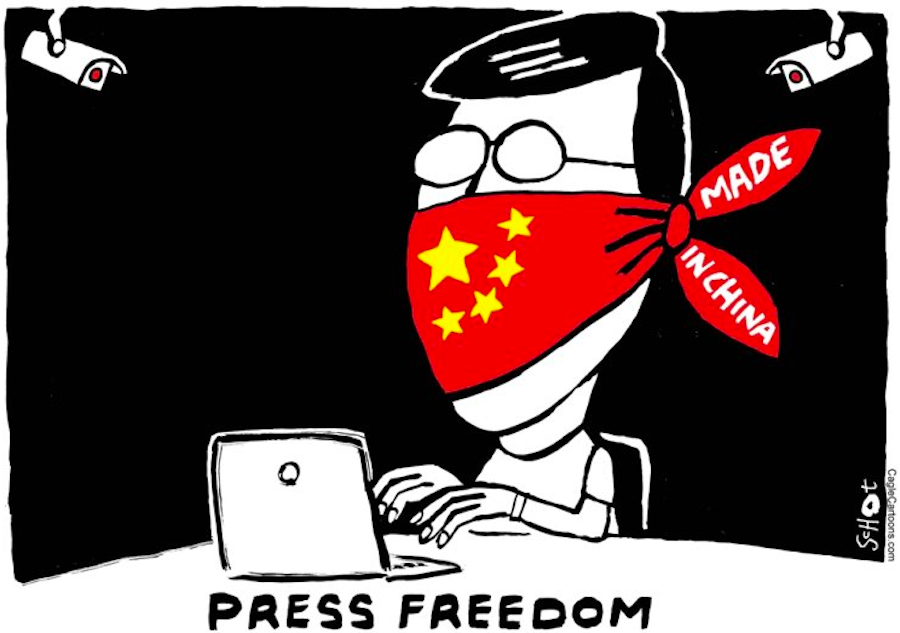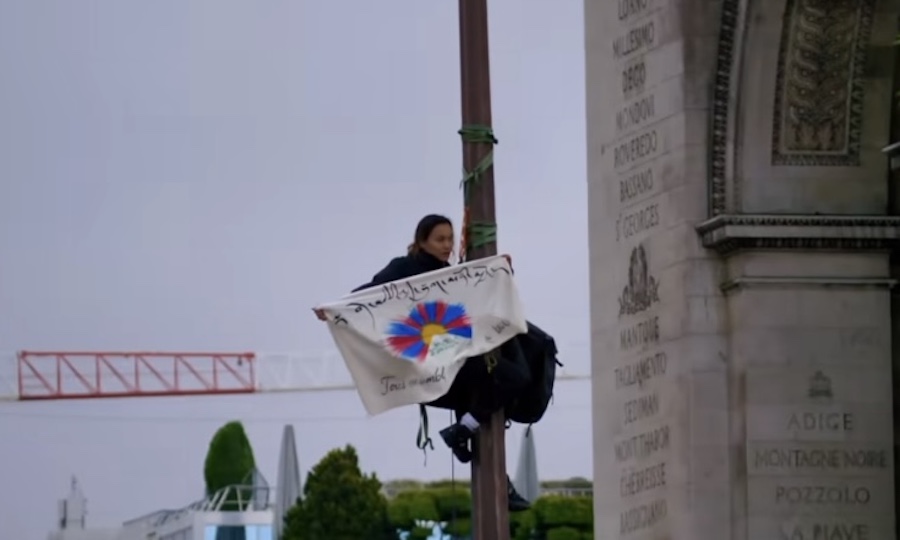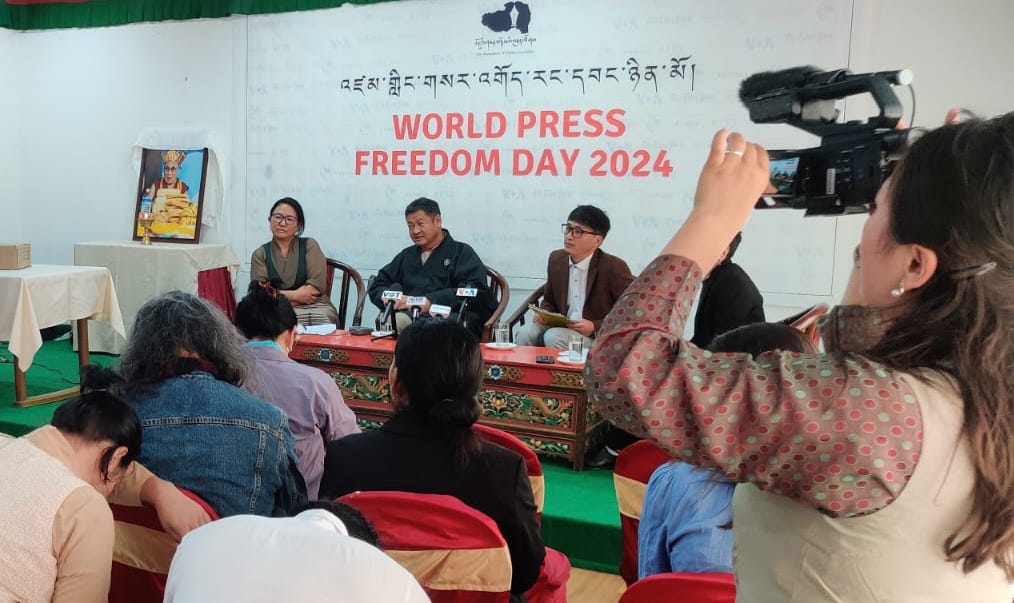The Higher People’s Court of Sichuan Province in Chengdu confirmed on Sunday 26 January 2003 the death sentences given to the Tibetan Buddhist teacher Tenzin Delek Rinpoche and his aide and relative Lobsang Thondup. According to the Chinese official news agency Xinhua, the sentences were applied for “sabotage [of] the unity of the country and the unity of various ethnic groups” and “crimes of terror”. Lobsang Thondup may already have been executed, or he is likely to be very soon.
Tenzin Delek Rinpoche was arrested on 7 April 2002 and his whereabouts and circumstances were unknown until the People’s Intermediate Court of Kartse in the autonomous prefecture of the same name sentenced him and Lobsang Thondup to capital punishment on 2 December 2002. Xinhua reports that a closed hearing on the case had taken place on 29 November 2002, in the course of which “evidences clearly showed” that both had repeatedly engaged in terrorist activities and “confessed their crimes”. Tenzin Delek Rinpoche (known in Chinese as A’an Zhaxi) received a death sentence with a two-year suspension of execution and was also deprived of his political rights for life for “committing crimes concerning explosions”. Moreover, he was given 14 years imprisonment and deprived of political rights for three years for “inciting the split of the country”. Lobsang Thondup (known in Chinese as Lorang Toinzhub) was sentenced to death without reprieve and deprived of political rights for life for “committing crimes concerning explosions”. He was also given 12 years imprisonment and deprived of political rights for two years for “inciting the split of the country” as well as an additional three years of imprisonment for “illegally possessing firearms and ammunition”.
According to Xinhua, Tenzin Delek Rinpoche had entrusted two lawyers, Chen Shichang and Yu Jianbo, from the Garze Prefectural Lawyers’ Office, with his legal defence. Since Lobsang Thondup did not arrange for any legal representative, the Intermediate People’s Court of Karze designated Kuai Qinghua and Liu Shijian, two lawyers from the same lawyers’ office, for his defence.
Before April 2002, the authorities had attempted to arrest Tenzin Delek Rinpoche at least twice, in 1998 and 2000. On both occasions, however, he was protected by the local population who issued petitions in his favour. He also seems to have received warnings from supporters in the local administration. Since the late 1980s, the Rinpoche has been a very popular religious leader in the region of Kartse and Lithang. He acted with success as a mediator in several local conflicts triggered mainly by the arrival of nomads and Chinese people into the region. He also has supporters among Chinese people living in the region. Tenzin Delek Rinpoche ran charitable institutions like schools, orphanages and old people’s homes and supported protests against excessive logging. He founded or reactivated seven monasteries in the region. He is also known to have vehemently campaigned against the worship of Shugden, a protective deity in Tibetan Buddhism, whose worship the Dalai Lama has discouraged because of its sectarian implications. While these activities gained him considerable support among the local population, they also raised opposition from the local authorities as well as from parts of the established clergy in the region, which is a traditional stronghold of the Shugden cult.
Tenzin Delek Rinpoche’s final arrest took place during a police operation on 7 April 2002, four days after a bomb explosion had shaken the central square of the provincial capital Chengdu. Lobsang Thondup, then on a business trip in Chengdu, was arrested after the explosion and allegedly admitted to police to have planted the bomb on behalf of Tenzin Delek Rinpoche. The Rinpoche’s arrest took place at night in the monastery of Jamyang Choekorling in Nyagchu Dzong. Eight persons were reportedly arrested together with him or on the next day. At least three other persons from Tenzin Delek’s entourage were detained during the month after his arrest and three are allegedly missing. While five of them have been released since then, at least four are believed to be still in custody, reportedly without a trial.
The Chinese writer Wang Lixiong reported that, following the arrest of Tenzin Delek Rinpoche, the authorities carried out intimidation campaigns among the local population, threatening that supporting him would be considered as complicity in his alleged crimes. Two of the persons detained after the Rinpoche’s arrest were involved in activities aiming at petitioning the authorities for his release or at gathering funds for paying a trusted lawyer to represent him during his trial.
The drastic sentences of 2 December 2002 against Tenzin Delek Rinpoche and Lobsang Thondup raised worldwide consternation. Amnesty International and several national and international Tibet support groups objected to the lack of transparency of the trial in Kartze and requested a new trial under public scrutiny and with involvement of lawyers trusted by the accused. A petition signed by Wang Lixiong and 23 other Chinese intellectuals was passed for this purpose to the National People’s Congress as well as to the Supreme Court and the Kardze Intermediate People’s Court. Two prominent Chinese lawyers, Zhang Sizhi and Li Huigeng, who defended Chinese dissidents like Wei Jingsheng and Wang Juntao in the past, were hired to represent Tenzin Delek Rinpoche and Lobsang Thondup during the appeal hearing. However, their participation was turned down by the Sichuan Provincial Court, with the hint that both prisoners would already have legal advisors. Xinhua reports that these are the same lawyers who represented them in the first instance, but sources insist that they were not chosen by the accused, but assigned by the court. Xinhua also mentions that Lobsang Thondup had accepted the first instance sentence and therefore technically did not appeal. However, his case seems to have been heard again on Sunday in Chengdu as well.
There was confusion on the date of the appeal which was first expected to be dealt with on Friday 10 January 2003 and then allegedly postponed to the following Monday, though it did not happen on that date either. Last week, Radio Free Asia was said to be in possession of a tape allegedly recorded from prison by Tenzin Delek Rinpoche in which he reaffirmed his innocence. The publication by the International Campaign for Tibet (ICT) in Washington on 21 January 2003 of a list of arrested persons from the Rinpoche’s entourage last Friday prompted the US government to express its concern about the case. The American embassy in Beijing issued a written statement in which it criticised the fact that these additional arrests had not been mentioned by Chinese officials during the last round of US-China talks on human rights in December, even though the leader of the American delegation, Lorne Craner, had clearly expressed his concern regarding the detention and sentencing of Tenzin Delek Rinpoche and Lobsang Thondup.
In indirect response to western criticism of the lack of transparency of the legal procedure, the Xinhua report of Sunday mentioned that, “the court did not hold an open hearing because some of the defendants’ criminal acts were related to state secrets”.
Although a suspended death sentence like the one given to Tenzin Delek Rinpoche is usually commuted to life imprisonment in China, death penalties without reprieve, like the one received by Lobsang Thondup, are often executed a few hours after the final verdict. It is therefore possible that Lobsang Thondup was executed on Sunday afternoon (26 January) or will be so on Monday (27 January), unless the supreme court in Beijing rules otherwise. A report from the German news agency DPA that Lobsang Thondup has already been executed, has not been confirmed so far.









